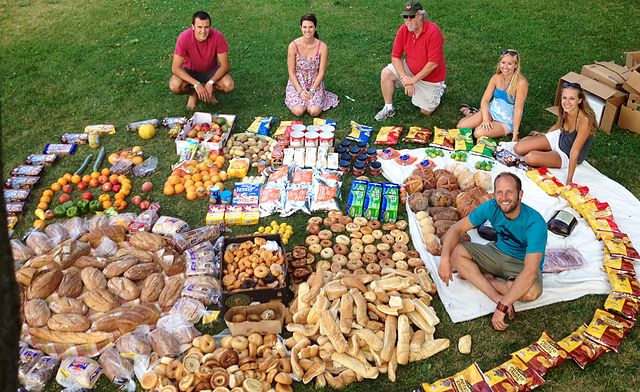Municipal solid waste (MSW), commonly known as trash or garbage in the United States and rubbish in Britain, is a waste type consisting of everyday items that are discarded by the public. "Garbage" can also refer specifically to food waste, as in a garbage disposal; the two are sometimes collected separately. In the European Union, the semantic definition is 'mixed municipal waste,' given waste code 20 03 01 in the European Waste Catalog. Although the waste may originate from a number of sources that has nothing to do with a municipality, the traditional role of municipalities in collecting and managing these kinds of waste have produced the particular etymology 'municipal.'
Bins to collect paper, aluminium, glass, PET bottles and incinerable waste
Food loss and waste is food that is not eaten. The causes of food waste or loss are numerous and occur throughout the food system, during production, processing, distribution, retail and food service sales, and consumption. Overall, about one-third of the world's food is thrown away. A 2021 meta-analysis, that did not include food lost during production, by the United Nations Environment Programme found that food waste was a challenge in all countries at all levels of economic development. The analysis estimated that global food waste was 931 million tonnes of food waste across three sectors: 61 percent from households, 26 percent from food service and 13 percent from retail.
Fruit and vegetables in a dumpster, discarded uneaten
Food recovered by food waste critic Robin Greenfield in Madison, Wisconsin, from two days of recovery from dumpsters
Protest against food waste, Berlin, Germany
Food waste alternative.





